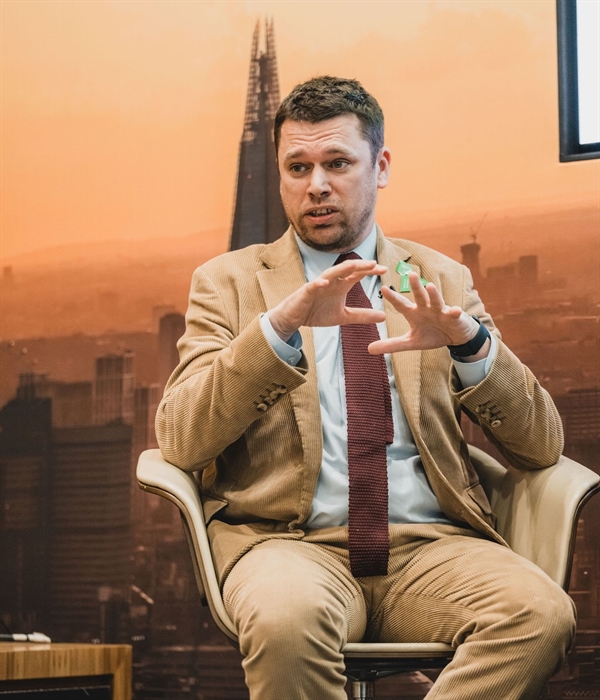Addiction is a silent epidemic in professional environments, often masked by the veneer of success; you rarely lose your home for being a workaholic.
The corporate world has long been a bastion of high performance, precision, and perfectionism. Yet, for nearly two decades, I carried a burden behind the professional façade—a battle with addiction that eroded my health, strained my relationships, and very nearly destroyed my career. I now know I wasn’t alone. Addiction and mental health struggles are far more pervasive in high-pressure industries than many of us realise. What holds us back is stigma, silence, and the fear of being seen as weak.
My recovery journey began six years ago. It wasn’t easy, but seeking help was the single most transformative decision of my life. I rebuilt not just my career, but also my purpose. Today, I am committed to changing how organisations address mental health and addiction in the workplace. Through MCG Consulting, I aim to create spaces where employees feel safe to seek support, where recovery is respected and visible, and where workplaces don’t just focus on surviving but thriving.
The Founding of MCG and CMAR
The Corporate Mutual Aid Recovery (CMAR) programme was born out of both personal experience and professional observation. During the pandemic, I started a simple initiative I called the Drop-In Bench on Highbury Fields near my home. Lawyers, many of them battling addiction, would join me to share their struggles. What struck me wasn’t just the depth of their challenges but how transformative it was for them to feel heard without judgment. Many of those individuals are now in long-term recovery, and while the credit is theirs, it showed me the power of connection and community in breaking cycles of shame and isolation. This is a tool we can often see working in other ways across organisations – like in the form of Employee Resource groups, which are rooted in the same principle – the principle of connection.
This principle is at the heart of CMAR. The programme helps organisations establish internal recovery networks, build stigma-reduction strategies, and create clear referral pathways for employees who may be struggling. It’s a practical, structured framework that addresses the unique pressures of corporate environments, particularly those where long hours, high expectations, and the “always-on” culture can exacerbate mental health and addiction challenges.
Why This Matters
Addiction is a silent epidemic in professional environments, often masked by the veneer of success; you rarely lose your home for being a workaholic. The statistics are staggering. In the UK alone, workplace stress, anxiety, and depression are among the leading causes of absenteeism, costing businesses billions annually. Yet addiction—a condition that often coexists with these struggles—remains under-addressed. When employees feel supported and connected, their productivity and overall well-being improve. The ripple effect is undeniable: lower absenteeism, higher retention, and a more engaged, resilient workforce. Addressing mental health and addiction isn’t just the right thing to do—it’s a business imperative.
But change requires a shift in mindset. Many HR professionals I’ve spoken with express concerns about opening the door to these conversations. “What if we don’t have the right answers?” they ask. The reality is you don’t have to have all the answers. Sometimes, simply creating a space for these discussions to happen is the most powerful first step.
The Role of Leadership
Cultural transformation starts at the top. Leaders have a unique opportunity—and responsibility—to model vulnerability and openness. Sharing recovery success stories within the organisation, either anonymously or publicly, can help reduce stigma and foster a culture where it’s okay to not be okay.
During a recent talk I gave at a major law firm, I met a senior partner who shared their own journey for the first time. Their openness inspired several junior staff members to share more openly, that visible vulnerability can be a catalyst for change.
Challenges and Opportunities
Despite growing awareness, I’ve seen resistance in some organisations to addressing addiction and mental health head-on. Common misconceptions persist—that these issues are rare or that they reflect personal failings rather than systemic challenges. But the tide is turning. Since sharing my story in publications like LawCare and the December edition of Law Gazette, I’ve been approached by dozens of firms looking to implement change.
I have found that in my work, talking about addiction awareness can create a foundation for open conversations and set the stage for b roader initiatives, whilst also helping to demystify addiction, encouraging empathy and understanding while providing actionable steps for organisations.
The Power of Connection
The foundation of my work—and my recovery—is the belief that connection is the opposite of addiction. By fostering connection, we can break the stigma that keeps so many people silent and suffering. Organisations have a unique opportunity to lead this change. Creating a workplace culture where support and community thrive doesn’t just transform individual lives; it strengthens the entire organisation.
Recovery saved my life, and I believe it can transform workplaces too. By working together, we can turn vulnerability into strength, silence into action, and isolation into connection.
If this resonates with you, I encourage you to start the conversation within your organisation. The first step is often the hardest, but it’s also the most important.
Steve McCann is Founder and Director at MCG Consulting. MCG’s mission is simple: to help businesses create environments where employees feel valued, supported, and empowered to bring their full selves to work.





